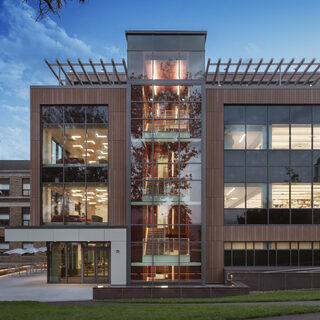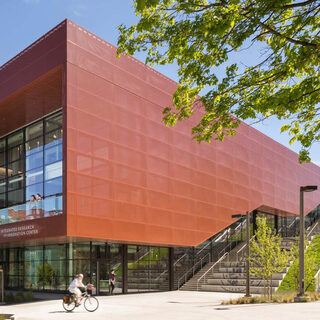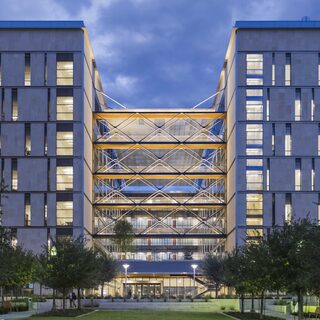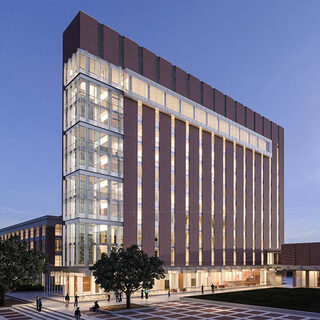Tradeline's industry reports are a must-read resource for those involved in facilities planning and management. Reports include management case studies, current and in-depth project profiles, and editorials on the latest facilities management issues.
Latest Reports
Innovation and Discovery Center
The primary mission of the new Innovation and Discovery Center (IDC) is to promote interdisciplinary STEM education and undergraduate research at Ursinus College. The IDC functions as a “link” building between two existing buildings—Pfahler Hall (home of chemistry, physics/astronomy, math/computer science, and environmental studies) and Thomas Hall (home of biology and psychology). By linking these two buildings, the IDC creates a unified science and technology center for the campus. This new three-building complex is organized to promote connections and synergies among the faculty and students in the various disciplines—between neuroscience and biology; biology and psychology; chemistry, biochemistry and molecular biology; health, exercise physiology, and biology; environmental studies and all of the sciences; and mathematics, computer science, and physics and astronomy. The building houses teaching labs, research labs, lab support spaces, a vivarium, a learning commons, active learning classrooms, a maker space, seminar rooms, and faculty offices, all in support of the interdisciplinary mission of the college.
Integrated Research and Innovation Center
The Integrated Research and Innovation Center (IRIC) at the University of Idaho houses more than 20 grant-funded teams of faculty and graduate and undergraduate researchers, representing every college at the university, who collaborate on cross-department research in the hard sciences, social sciences, and humanities. No one “owns” any space in the building; instead, teams rotate in and out of the facility based on project lifespan, from a few months to several years, requiring a flexible and adaptable design.
A Community College’s Lessons on Launching a Space Planning Organization
When Johnson County Community College asked them in 2015 to establish a space planning program, Janelle Vogler and Robyn Albano wondered where to start. Now they advise the college’s top decision-makers to optimize building utilization on campus. In launching a space planning organization from scratch, they point to several lessons they learned along the way: It’s vital to assign a point person to lead the effort; you need a team whose members commit to the institution’s interests above any one department; a successful organization will establish transparent processes for requests and decisions; and don’t be afraid to start data collection with a simple spreadsheet.
UT Austin Transitions from Departmental to Theme-Based Engineering
Opened in August 2017, the Engineering Education and Research Center (EERC) at UT Austin’s Cockrell School of Engineering is a leading-edge STEM environment with open and flexible space for active learning, hands-on student projects, and research, as well as maker space for prototyping marketable products that solve real-world problems. By maximizing transparency, the building’s designers supported the Cockrell School’s goal of fostering collaboration and interdisciplinary research. The building has also become an iconic campus gateway that puts the process of engineering on display and offers public access to its café, study spaces, and meeting rooms.
Managing Transformational Campus Renovation
University of Michigan transformed Weiser Hall—a 1960s brick tower with floor after floor of double-loaded, concrete block corridors—into a dynamic and flexible “center of centers” that brings together international and interdisciplinary institutes and centers so they can share space, services, and ideas. The provost’s charge was to renovate the building to create the “academic workplace of the future.” With the help of brightspot strategy and Diamond Schmitt architects, the team accomplished that mission with a seven-step formula that yielded impressive results, including an average overall productivity savings of 4.26 hours per person per week, the equivalent of every unit being able to grow its staff by 10 percent at no cost.




